$149.00 Original price was: $149.00.$44.00Current price is: $44.00.
Digital Download: You will receive a download link via your order email
Save up to 85% compared to Salepage prices. In addition, earn additional points. Save more on your next order.
Please contact email: wixzip.cs@gmail.com if you have any questions about this course.
 Purchase this course you will earn 44 Points worth of $4.40
Purchase this course you will earn 44 Points worth of $4.40Elevate your skills with the Michelle Mioduszewski, Christine Winter-Rundell & Robert Donatelli – Visual Rehab After Neurological Events course, available for just $149.00 Original price was: $149.00.$44.00Current price is: $44.00. on Utralist.com! Browse our curated selection of over 60,000 downloadable digital courses across diverse Health and Medical. Benefit from expert-led, self-paced instruction and save over 80%. Start learning smarter today!
 Michelle Mioduszewski, Christine Winter-Rundell & Robert Donatelli – Visual Rehab After Neurological Events
Michelle Mioduszewski, Christine Winter-Rundell & Robert Donatelli – Visual Rehab After Neurological Events
Master innovative visual rehabilitation interventions for your patients experiencing brain injuries, stroke, or concussions…
It’s typical to dive right into treating the cognitive or physical function impairments, focusing on things like falls or memory. But have you ever noticed how your clients…
…bump into objects…
…take longer than usual to read the instructions for exercises…
…get headaches during your sessions?
What might you be missing? Visual impairments.
Visual function is intertwined with functional performance – reading, writing, driving, dressing, mobility – and if it’s not initially addressed, the consequences could lead to wasted rehab treatments, slower recover, and little to no improvements.
Visual Rehab After Neurological Events: Interventions for Your Clients with TBI, CVA & Concussion will walk you through:
- Anatomy and structure of the eye and brain in regard to perception and processing
- The principles of vision testing with dozens of evaluation and screening methods
- Possible red flags of vision problems that are often overlooked or misdiagnosed
- The types of visual impairments, which are often confused for one another
- Advanced technology options and cost-effective alternatives
- Documentation tips and tricks to justify insurance coverage
You’ll gain step-by-step guidance to address each condition with new and ready-made tools, so your overall rehab treatment is successful!
See your approach through a new lens when you integrate visual rehab into your therapeutic plan and quickly correct the vision problems your clients are experiencing!
You would never start working with a new rehab client without assessing them first, but visual impairments are often very similar, which makes it easy to mistake one for another. Module 1 of this online course will show you how:
- Vision is integral for most daily tasks – yet is rarely considered in treatment plans or reported by clients
- The impairments are affecting your current treatment plans
- To recognize red flags of possible vision problems
- To interact with your client’s support system to aid in their overall recovery
Michelle takes you through dozens of assessments and easy identifiers to recognize differences between a wide range of visual conditions. She also arms you with the best sequence of action so no matter who comes to you, your treatments can be on-par with their therapy goals.
You’ve already identified the weak muscle, now it’s time to strengthen it, which makes treatment much more familiar to your rehab setting.
Much like another physical-based impairment, visual conditions require consideration for active range of motion and the direction of weakness when you dive into treatment. From neglect, to pusher syndrome and ADL’s, this treatment session uses real-life situations, so you can see the techniques in action!
In Module 2, Michelle Mioduszewski, MS, OTR/L, walks you through:
- Low-cost exercises you can use or create in your office, such as string reading and the hart chart, along with recommendations for advanced tools to analyze and compile data for better functional outcomes for your clients (and documentation)
- Easy ways to remember anatomy and how it interacts with your exercises
- Further assessment and confirmation tests
- Patient and family education for deficits
- Proper documentation and goal setting
Get to Know the Course Experts

Michelle Mioduszewski, MS, OTR/L, has been practicing occupational therapy in acute, inpatient rehabilitation, and outpatient settings throughout her career. Visual rehabilitation following neurological events has been an area of focus. Michelle owns and operates Niagara Therapy, LLC, a team-oriented practice based in Erie, PA that offers OT, PT, and SLP to adults and children with neurological concerns. She also consults for legal, education, and professional situations.
Michelle is the AOTA Administration and Management Chairperson for the Rehabilitation and Disability Special Interest Section, National MS Society Board of Trustees, and is a National MS Society Partner in Care Designation. She was trained in NDT and Neuro-IFRAH (NDTC), Bioness Certified, REO Certified, SAEBO Certified, and specialized in vision and cognitive rehabilitation. A published writer by AOTA Press, she also teaches on topics such as IASTM, Neuro-Rehab/Neuro-Handling, vision, cognition, spasticity, ergonomics and complex wheelchair evaluations.

Christine Winter-Rundell, OD, FCOVD, FAAO, is a Fellow of the American Academy of Optometry and a Fellow of the College of Optometrists in Vision Development (COVD). Her interests lie in primary eye care for children of all ages, with a special focus on children with vision-related learning disorders or any patients who have had a brain injury. She enjoys co-managing patients with other professionals and frequently works closely with occupational, physical, and speech therapists, psychologists, and pediatricians.
Dr. Winter-Rundell graduated with honors with a degree in Biology and minor in Psychology from the University of Iowa in 2000. She attended Southern College of Optometry in Memphis, TN for her Doctor of Optometry education, followed by a Residency at Nova Southeastern College of Optometry in the area Primary Eye Care with emphasis in Pediatrics. In 2005 she joined The Children’s Eye Center at Cedar Rapids Eye Care. Dr. Winter has been very active in optometric service missions to five different countries in Latin America where her Spanish language fluency was advantageous, and looks forward to sharing that experience with her children. Click here for information about Christine Winter-Rundell.

Salepage: https://catalog.pesi.com/sales/rh_c_001329_visualrhneuroevents_organic-79469
Archive: https://archive.fo/wip/G7wVP
Delivery Method
Be the first to review “Michelle Mioduszewski, Christine Winter-Rundell & Robert Donatelli – Visual Rehab After Neurological Events” Cancel reply
Cultivate continuous growth with the Michelle Mioduszewski, Christine Winter-Rundell & Robert Donatelli – Visual Rehab After Neurological Events course at Utralist.com! Unlock lifetime access to premium digital content, meticulously designed for both career advancement and personal enrichment.
- Lifetime Access: Enjoy limitless access to your purchased courses.
- Exceptional Value: Benefit from savings up to 80% on high-quality courses.
- Secure Transactions: Your payments are always safe and protected.
- Practical Application: Gain real-world skills applicable to your goals.
- Instant Accessibility: Begin your learning journey immediately after buying.
- Device Compatible: Access your courses seamlessly on any device.
Transform your potential with Utralist.com!
Related products
= 53 Points
Health and Medical
= 43 Points
Health and Medical
= 85 Points
Health and Medical
CDT Dental Coding and Reimbursement Update: Identifying Common Practice Mistakes – Paul Bornstein
= 85 Points
Health and Medical
= 29 Points
Health and Medical
= 33 Points
Health and Medical
‘Quantum’ Chakra Clearing and Balancing Series – Jonette Crowley
= 52 Points
Health and Medical
= 28 Points




 Michelle Mioduszewski, Christine Winter-Rundell & Robert Donatelli – Visual Rehab After Neurological Events
Michelle Mioduszewski, Christine Winter-Rundell & Robert Donatelli – Visual Rehab After Neurological Events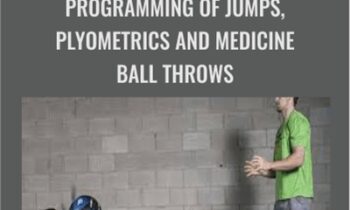
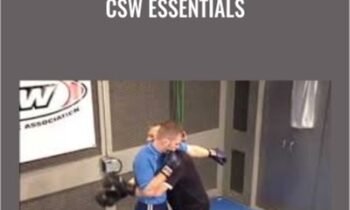

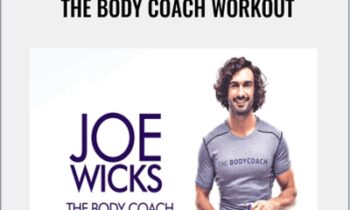
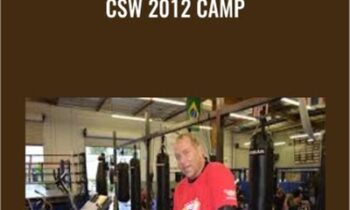
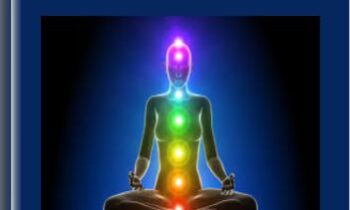

Reviews
There are no reviews yet.